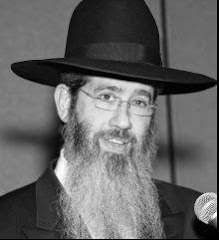
One of the highlights of the pre-Pesach season in the Flatbush Jewish community is the annual Shabbos Hagadol Drashah of Klal Bais Yitzchok delivered by its much-beloved mara d'asra, Rabbi Dovid Goldwasser. The drashah took place this past Shabbos Parashas Metzora, 7 Nisan/April 12 at Edward R. Murrow High School. Yidden walked in from outlying areas as well to attend this kiddush Hashem.
The Rav began his drashah by noting that preparations for Pesach are taking place on the heels of various tzaros that have rocked Klal Yisrael recently – in Eretz Yisrael, in the United States and in Europe. In addition, many people presently face daunting challenges in their private lives.
He cited Chazal who tell us that on Pesach, which is the chag ha'geulah, the festival of redemption, one in enjoined to regard himself as if he had come out from Mitzrayim. Yet, the Sefas Emes tells us that the inyan of geulah applies at this time not only on a communal level but on a personal one as well. This zeman gives a person the potential to extricate himself from his own personal "Mitzrayim," each with its attendant hardships. We see from here that Pesach is a time of hope and encouragement for the individual as well as for the klal.
There is a custom mentioned by the Shelah to kiss the matzah and marror before eating them, to show the simchah and the chavivus (preciousness) with which we approach these mitzvos. Hagaon Harav Yitzchak Hutner, zt”l, commented that while this custom in regard to the matzah is readily understandable since matzah brings to mind our redemption one may wonder why it applies to marror which represents the bitterness of Egyptian bondage. He explains that kissing the marror implies kabbalas yissurim b’ahavah, acceptance of suffering with love. Such willingness on the part of those undergoing adversity will serve as a powerful zechus which can cause the yissurim to be lessened or even removed.
Rav Goldwasser noted that in passage “Matzah Zoh” in the Haggadah we read that Bnei Yisrael left Mitrayim with matzos since upon Hashem’s revelation that the time of redemption was at hand they had to leave imminently and had no time to allow the dough to rise or to prepare other provisions. We learn from here that when considering a worthwhile undertaking, we should be careful not to be overcautious, burdening ourselves with questions and calculations and thereby risk losing a valuable opportunity. An example of this is the irrelevant, foolish questions people ask in regard to a shidduch possibility or not attending a shiur because of minor inconveniences. Bnei Yisrael’s hasty exodus from Mitzrayim is a model for us to avoid overcomplicating our lives and thus missing opportunities.
On Echad Mi Yodei’a in the Haggadah, the Rav quoted Hagaon Harav Elazar Shach, zt”l, who said that the words Echad Ani Yodei’a and Shnayim Ani Yodei’a which refer respectively to knowing Hashem and knowing the Torah, represent everything a person needs to know; all else is nonessential.
He related that a yungerman once came to Rav Shach with the idea that the Rosh Yeshivah should get involved with a scandalous situation. The Rosh Yeshivah asked him, “Why is it that you are aware of this and I am not?” While Rav Shach was unsparing in the guidance he provided Klal Yisrael, he felt involvement with this particular matter would be unnecessary and a distraction from the ikkar – Torah and avodas Hashem.
Rav Goldwasser spoke about how the wonderful middah of savlanus (patience) enhances one’s life. Fathers sometimes wish to convey lengthy, profound divrei Torah at the Seder, and have little patience for their children’s more elcmentary Torah thoughts they were looking forward to share. The father should muster the patience to give the spotlight to his children even if he won’t be able to cnvey all that he prepared, he said.
In a similar vein, the Rav spoke about how important it is to be mevater (give in) to others in daily situations and insisting on “one’s rights.” This could be in shalom bayis situation or even when drivers contend over a parking space. To illustrate the tremendous zechus that is generated when one is mevater to another, the Rav related that in a certain shul two bar mitzvah bachurim were erroneously scheduled to lein on Shabbos Parashas Yisro of that year. Shortly beforehand, after both bachurim had spent months preparing, the mistake was discovered. Fortunately, one bachur volunteered he would step aside and let the other read the parashah.
Several years later this bachur who gave up the honor found himself in the hospital with his mother who faced a critical medical situation. A decision had to be made with the input of daas Torah.
That Friday Hagaon Harav Elyashiv, shlita, entered that very hospital for observation where he would remain for Shabbos. It was the week of Parashas Yisro and someone was needed to lein for Rav Elyashiv. Having once carefully prepared this parashah the bachur volunteered for their privilege and was accepted. After leining for the Rav, the bachur was able to speak to the Rav about his mother’s predicament and came away with a psak and a brachah for her full recovery.
Rav Goldwasser commented that Hashem never forgets a commendable deed and always pays back at some point in time.
As every year, the Rav concluded with a request for assistance in providing Yom Tov provisions for the families in need.
The drashah was dedicated in part by Kosher Palace of Avenue U in Brooklyn.







No comments:
Post a Comment